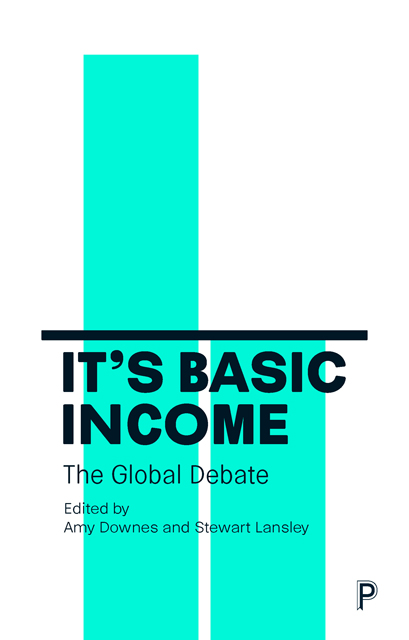21 - Why a basic income is not good enough
Published online by Cambridge University Press: 11 April 2023
Summary
‘This is why I oppose guaranteed income: “… the one who feeds you usually imposes his will upon you.” We have enough of that already.’
I’ve spent a lot of time lately speaking against the establishment of a guaranteed minimum income. I want to make a few things clear to those who think I don’t care about meeting needs:
1. I feel the current distribution of wealth is grotesquely unfair.
2. I don’t believe that those who cannot or will not work should be allowed to starve.
3. I would be against plans to eliminate or cut the existing welfare system as long as it is needed.
4. I believe that we should build a community in which everyone’s needs are met.
But, even so, I oppose fighting for a guaranteed income. Let me explain why.
Looked at closely, guaranteed basic income is simply more widely available welfare. It would only help people have more access to consumption without altering anything about how production is organised. It would not alter wealth distribution and ownership. And finally, it would require a new bureaucracy staffed by agents and experts to regulate and allocate this universal distribution of money.
My objections have surprised many people, but I think they are consistent with what I do think is the solution to our economic justice problem. I favour deep democracy replacing the rule of capital in our lives. This would require reparations and the reconstruction of the commons, but this time including the earth and the fungible financial resources that have been created by our labour within exploiting systems.
Our economy suffers from the fact that communities are not having their needs met and the quality of life equitably elevated for all. Neither the self-regulated market nor the intervention of government has been successful in doing this to the satisfaction of the many. The lack of purchasing power of working class people is a factor in the cyclical crises we face. The few who are privileged within and dominate the existing system induce others to believe that, rather than oppose their domination and exploitation, we should instead struggle to emulate the rich and then all of who are worthy could be successful and take care of our responsibility to others.
- Type
- Chapter
- Information
- It's Basic IncomeThe Global Debate, pp. 109 - 112Publisher: Bristol University PressPrint publication year: 2018



